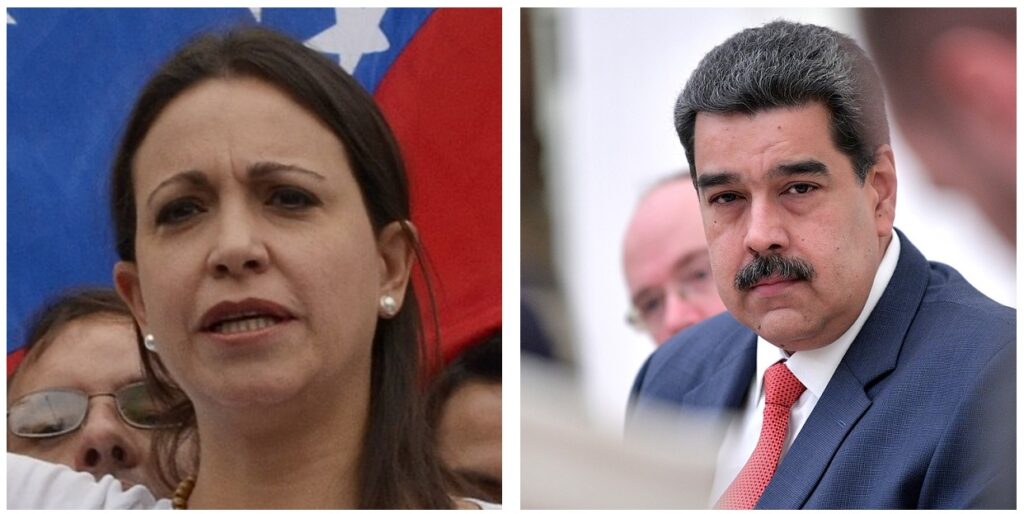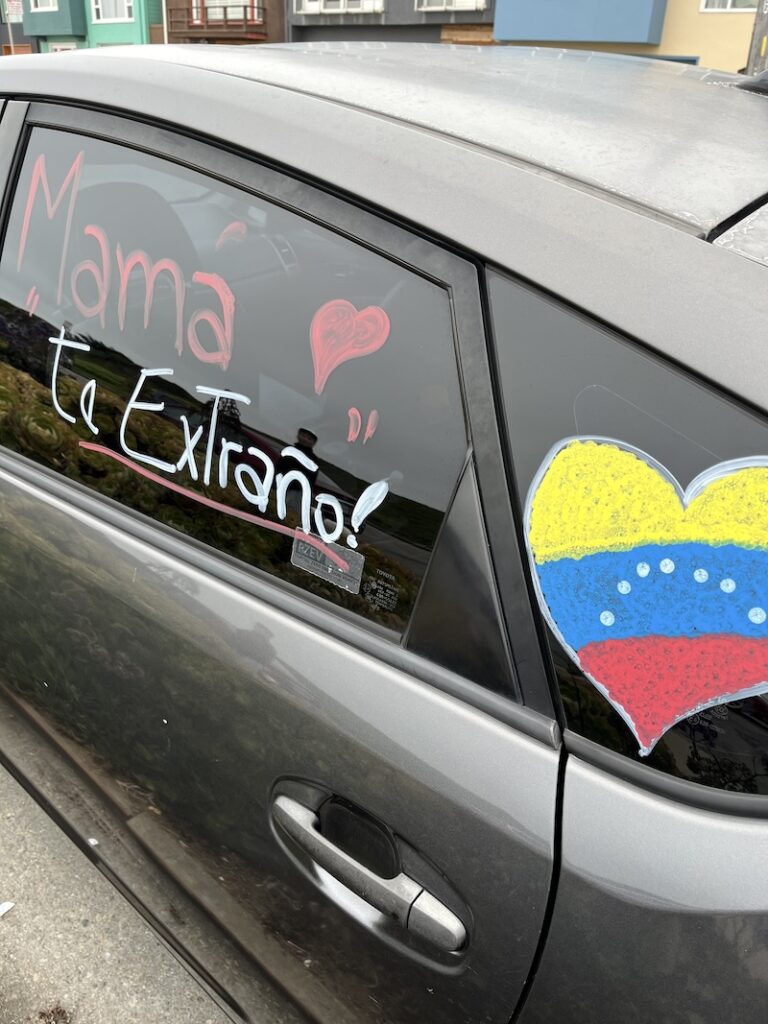Venezuelan President Nicolas Maduro has claimed victory in an election that many polls suggested could bring an end to his now decade-old rule. The opposition, meanwhile, led by Maria Corina Machado and presidential candidate Edmundo Gonzalez, has rejected Maduro’s claims and has joined in calls from both within and without the South American nation for a transparent count of the ballots. Maduro, who heads the United Socialist Party of Venezuela, was the chosen successor of Hugo Chavez, who led the country from 1999 until his death in 2013. Machado is a pro-business political conservative who was barred from running by Maduro’s government. Gonzalez, a little known former diplomat, stepped in in her stead. Meanwhile, images of ordinary citizens taking to the streets in protest are flooding social media. In an interview with EMS Editor Peter Schurmann, one Venezuelan who previously held positions in past governments and monitored a polling station during voting on July 28, worries the situation could “spin out of control.” We are not using his name here out of concern for his security.
Can you tell me what the scene is, what you’re seeing and what you’re hearing around you?
Right now, there is a lot of silence. But the situation, you can feel, is tense. Last night, when I got home after around midnight, after the National Electoral Council announced the results, people started to gather things from their kitchens, and they started making a lot of noise. That lasted for about maybe 20 minutes. But then very quickly, things started circulating through WhatsApp groups about, you know, people wanting to go out to the street and protest. There are images from the west side of Caracas, a traditional base of support for Chavez, of masses of people streaming onto the streets to protest Maduro. This is a shift, and I imagine the situation can spin out of control.
In the video above, protestors tear down campaign signs for Venezuelan President Nicolas Maduro, chanting, “This government is going to fall.”
Venezuela’s military has stood by Maduro these past years. How will they respond to potential civil unrest?
Well, so far, until this morning, the Minister of Defense, General Padrino Lopez, announced that he’s supporting Maduro. And so far, the high military commanders are supporting Maduro. But there is word that officers in the middle ranks are not happy. So it could be, and I’m guessing here, that if protests continue this way and we start seeing people killed, etc., maybe it will… lead to a breakdown in the military. But so far, until today, the High Command is united, supporting Maduro.
What is your greatest hope and your greatest fear at this moment?
Well, it’s a difficult answer to give you. Before the election, my hope was that whatever the results, either party would recognize them. I knew it was going to be a close call. I didn’t believe those polls that gave the opposition a 70-30 edge. I never believed those polls. But there were other polls that gave the government 60-40. I didn’t believe those polls either. I knew it was going to be a close call. I was expecting a 5% difference either way. And I was hoping that the winner and the loser would accept the results. But now with what’s happening, my biggest fear is that there will be bloodshed in the street. Because people are angry, people are tired, people are upset. There is a risk that we’re going to have a lot of people killed.
My hope is that somehow the international community, especially people who have ways to talk to Maduro, will convince him that the current situation is a dead end and that he needs to really find a way to open a true dialogue with the opposition and that the government and the opposition can come to an agreement or some type of political solution, which is very, very difficult in this moment. I was also hoping that the U.S., through back-channel negotiations, could convince Maduro that there is a safe exit for him in the event he loses. I don’t think that took place.

There are of course those in Venezuela who still support Maduro. What is their reasoning?
Before I answer the question, let me make a distinction. There is a difference between those we call Chavistas and people who call themselves Maduristas. And I think a lot of the people who are coming down to protest from the popular sectors are still Chavistas in their heart because they remember Chavez with a lot of respect, even with love. But then, before Chavez died, he asked people to vote for Maduro, and I think people gave Maduro the support because Chavez asked for it.
The people who support Maduro today say – and it’s partially true – that the U.S. policy of regime change has been going on since Chavez. They point to the ongoing sanctions that have lasted across successive U.S. administrations. You know, Venezuela used to produce three million barrels of oil per day. There was a time when that fell to less than half a million. So, Venezuela lost its main source of income. That was when the food crisis hit, you know, food insecurity, long lines to buy things, people started migrating. Yes, there was corruption and mismanagement here. But these factors allowed Maduro and those around him to argue that U.S. foreign policy is to blame.

How has outmigration from Venezuela impacted the country? And do you anticipate more people fleeing if Maduro manages to stay in power?
According to the UN 7 million Venezuelans have left the country. We’ll learn more about the true number once the votes are tallied against voter rolls. We’ll see how many registered voters didn’t turn up. And I think that was something that affected the opposition because all those people who left couldn’t vote. But yes, there will be a huge outflow in the coming months if this political instability continues. And if the U.S. goes the way of increasing economic sanctions, things will become even worse. And of course, if the U.S. increases sanctions, that will drive more people to the U.S. border.
Part of the opposition’s message was an appeal to Venezuelans abroad to come back. How do you think that resonated?
I have a friend who came back from Colombia recently. He talked of the xenophobia he experienced there and said he wanted to come back home. But now he’s asking the question, you know, what do I do? His family still back in Colombia, and he came back because he said, you know, he wanted to see if he could start a business or do something, but now he’s trapped in this turmoil. And you know, there are many Venezuelans who want to come back, but come back to what?
***Update: The Associated Press is reporting that Venezuela’s opposition candidates now say they have proof that they won the election, telling reporters they had secured 70% of tally sheets that show an overwhelming victory for Gonzalez.




